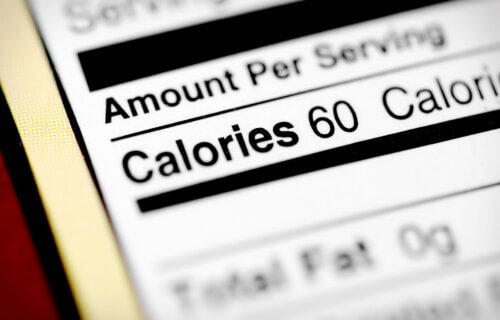BETHESDA, Md. — Reducing calories from one’s daily diet — without skimping on essential nutrients — can rejuvenate muscles and activate key biological pathways linked to healthier aging. That’s the conclusion of a recent study by researchers at the National Institutes of Health (NIH). Their work provides new hope for strategies to slow down age-related diseases in humans, following similar benefits observed in animal studies.
At the heart of the investigation was the analysis of data from the CALERIE (Comprehensive Assessment of Long-Term Effects of Reducing Intake of Energy) study. Participants in this initiative, which was backed by the National Institute on Aging (NIA), aimed to slash their daily calorie intake by 25 percent. However, over a two-year period, they managed to reduce consumption by an average of 12 percent — a feat that nonetheless yielded significant health benefits.
“A 12% reduction in calorie intake is very modest,” says Luigi Ferrucci, M.D., Ph.D., the study’s corresponding author and NIA Scientific Director, in a statement. Dr. Ferrucci emphasized the feasibility of such a reduction, suggesting, “This kind of small reduction in calorie intake is doable and may make a big difference in your health.”
Skeletal muscle health is a cornerstone of our ability to lead active, independent lives as we grow older. Past research pointed to exercise as the primary human intervention for preserving muscle vitality. Now, the CALERIE trial adds another piece to the puzzle: moderate CR not only emulates the physiological benefits seen in calorie-restricted animals but also activates biological pathways linked to muscle repair, aging, and inflammation.
In a fascinating turn, researchers also discovered that despite participants losing muscle mass — as evidenced by a 20-pound average weight drop over the first year — they did not see a corresponding loss in muscle strength. This phenomenon indicated an improvement in what’s known as muscle-specific force, the amount of power generated per unit of muscle.
To dig deeper into the biological impact of calorie restriction, scientists conducted muscle biopsies on participants at the start of the study, and again after one and two years. They isolated messenger RNA (mRNA) from these muscle samples, which is a molecule that carries genetic information for protein creation. By analyzing the protein sequences encoded by the mRNA, researchers were able to pinpoint which genes were dialed up or down in response to calorie reduction.
The findings were clear: calorie restriction revved up genes involved in energy generation and metabolism while putting the brakes on inflammatory genes. Since inflammation is closely linked with aging, reducing it could be a critical step toward preventing age-related diseases.
“Since inflammation and aging are strongly coupled, calorie restriction represents a powerful approach to preventing the pro-inflammatory state that is developed by many older people,” Dr. Ferrucci explains.
This study not only underscores the potential health benefits of moderate calorie restriction for humans but also bridges a vital gap in our understanding of how these mechanisms work at a molecular level. For those looking to enhance their healthspan—the period of life spent in good health—it seems that a bit of calorie cutting could go a long way.

Is Calorie Restriction Safe?
Calorie restriction is a safe and effective way to improve your health and longevity. However, it is important to talk to your doctor before starting a calorie restriction diet, as it may not be right for everyone.
If you are considering calorie restriction, there are a few things you can do to make it easier, such as:
- Start slowly and gradually reduce your calorie intake over time.
- Make sure you are still getting enough nutrients by eating a variety of healthy foods.
- Talk to a registered dietitian or other healthcare professional for help creating a calorie restriction plan that is right for you.
Calorie restriction may be a powerful way to improve your health and longevity. However, it is important to talk to your doctor before starting a calorie restriction diet, as it may not be right for everyone.
Here are eight ways to set yourself up for a successful attempt at calorie restriction:
- Set realistic goals. Don’t try to cut your calories too drastically at once. Start by reducing your intake by 100-200 calories per day and gradually increase the amount as you get used to it.
- Make small changes to your diet. You don’t have to overhaul your entire eating habits overnight. Start by making small changes, such as swapping out sugary drinks for water or unsweetened tea, or choosing whole grains over refined grains.
- Focus on nutrient-dense foods. When you’re cutting calories, it’s important to make sure you’re still getting the nutrients your body needs. Fill your diet with plenty of fruits, vegetables, lean protein, and whole grains.
- Pay attention to portion sizes. It’s easy to overeat, even when you’re trying to be mindful of your calorie intake. Use measuring cups and spoons to portion out your food, or use a smaller plate to help you control your portions.
- Eat slowly and savor your food. When you eat slowly, you give your body time to register that you’re full, which can help you avoid overeating.
- Drink plenty of water. Water can help you feel full and satisfied, which can help you eat less. Aim to drink eight glasses of water per day.
- Get regular exercise. Exercise helps you burn calories and can also help you build muscle, which can help you burn more calories at rest. Aim for at least 30 minutes of moderate-intensity exercise most days of the week.
- Don’t give up. Calorie restriction can be challenging, but it’s important to stick with it to see results. If you have a setback, don’t get discouraged. Just pick yourself up and start again.
Remember, calorie restriction is a journey. It takes time and effort to see results. But if you’re willing to put in the work, you can achieve your goals. Talk to friends, family, or a registered dietitian about your calorie restriction goals. They can offer encouragement and additional support.
You might also be interested in:
- Intermittent fasting or counting calories: Which one is better for losing weight?
- Best Muscle-Building Supplements For 2023: Top 5 Aids Most Recommended By Fitness Pros
- Wake up, get thin! Morning exercise leads to burning more calories

